GamesRadar+ Verdict
Pros
- +
Already-great games play even better on PS3
- +
Ghost of Sparta looks amazing
- +
Plenty of relatively easy Trophies
Cons
- -
Video cutscenes still look low-res
- -
So do the textures in Chains of Olympus
- -
Switching games means quitting to XMB
Why you can trust GamesRadar+
Without question, the two God of War games released on PSP are among the very best titles ever to appear on the handheld. That’s not just according to us, either; God of War: Chains of Olympus still stands as the highest-rated PSP game of all time on Metacritic, and while Ghost of Sparta was almost certainly hurt by its release less than a year after God of War III, its 86 Metascore is still nothing to sneeze at. So it’s kind of a foregone conclusion that the God of War Origins Collection is something worth playing, whether you never got around to the games on PSP or just want to play through them again in their definitive form.
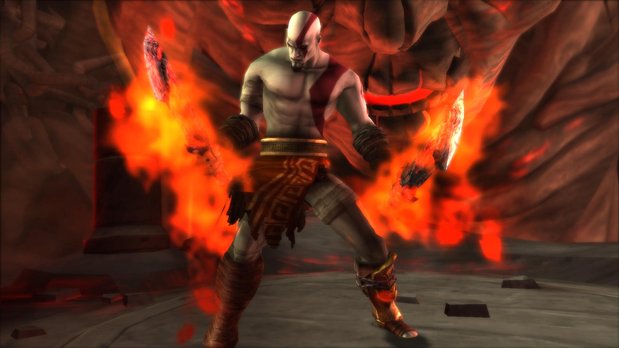
What surprised us about it was just how much it’s worth playing. Certainly, the graphical boost both games get from the conversion to PS3 is nice, although it’s much nicer in Ghost of Sparta, which looks almost as good as a first-gen PS3 game (Chains of Olympus, by contrast, still sports some noticeably blurry-looking textures, and both games feature relatively low-res video cutscenes). And the addition of Trophies is definitely a big incentive for those who care about collecting them.
The real draw here, however, is how much better the games feel when played with a more comfortable DualShock. Losing the tiny buttons, analog nub and overall rigidity of the handheld removes a tiny layer of irritation between player and game, enabling us to focus more closely on the action (although seeing it on a much bigger screen might have something to do with that as well). Also, having a second analog stick means no more holding down the shoulder buttons to dodge incoming attacks (although that still works, if you’re somehow more comfortable with it).
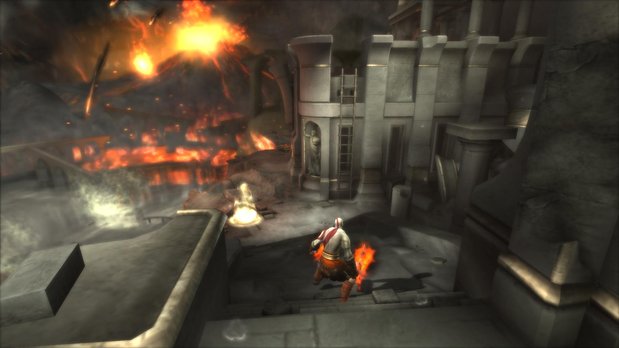
If you’ve never played Chains of Olympus or Ghost of Sparta in the first place, though, all those little improvements will be a secondary concern. So, to reiterate, Chains of Olympus and Ghost of Sparta are excellent games, not just by PSP standards, but by the standards set by God of War as a series. Kratos is every bit as angry and violent in these two games as he is in their console cousins, and the hack-and-slash gameplay is just as deep, balletic and satisfying.
Of the two, however, Chains of Olympus ends up feeling like the weaker entry (and, therefore, is the one you should play first). A prequel set before the events of the first God of War, it follows Kratos on a roughly six-hour quest to free sun-god Helios from the depths of Hades, thereby restoring light to the world and giving him ample opportunities to eviscerate mythical Greek monsters along the way.
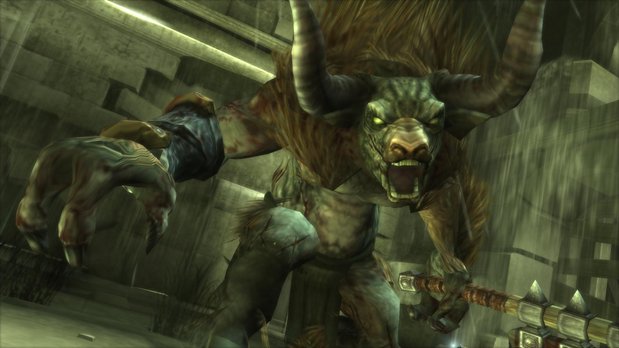
Visually, Chains is still impressive for an upscaled PSP game, although its slightly chunky graphics and fuzzy textures never make it look like anything else. So it’s a good thing that the button-mashy, combo-driven gameplay still holds up pretty well (especially once you’ve earned the hulking, enemy-bashing Gauntlet of Zeus), even if the frequent quick time events feel a little antiquated and intrusive. The story’s fantastic as well, and still delivers one of the series’ most heartrending emotional moments near its end.
Ghost of Sparta, meanwhile, looks fantastic and plays even better. Now that we’re a bit further out from God of War III, Ghost’s gameplay – which incorporated a few key ideas from GoWIII, while introducing several of its own – is easier to appreciate on its own merits, and feels more dynamic and interesting than it did eight months after its PS3 predecessor’s release.
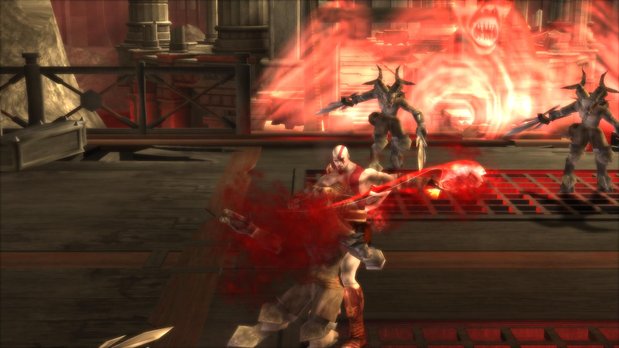
It also feels a lot more interesting after playing through Chains. An interquel set between God of War and God of War II, it ramps up the sense of scale – a prolonged, multi-part battle with the gargantuan sea-monster Scylla takes up a sizable chunk of its nearly eight-hour runtime, for example – and feels a little truer to Kratos’ destructive character. Here, he’s not trying to save the world or perform errands for the gods – he’s just in it for himself. And during his destructive quest to find his brother Deimos (who was kidnapped as a child by the gods), he’ll callously do things that amount to genocide, simply because he can’t be bothered to give a shit.
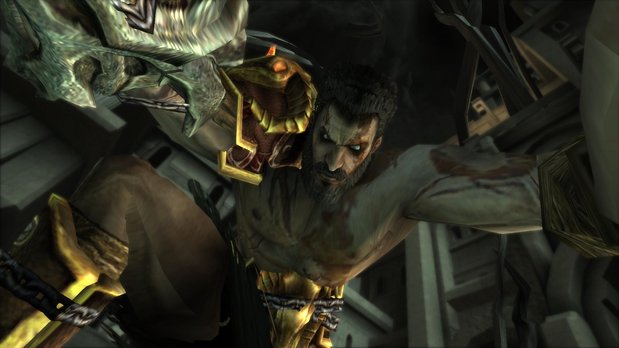
It’s worth noting, also, that while we’ve made sure to point out each game’s runtime, they both have a bit more longevity than that, thanks to bonus challenge modes, lots of unlockable extras and (in Ghost’s case) a combat arena in which players can fend off customizable waves of monsters. Taken together, the games make for a slick, compelling package that offers a much more attractive way to play two important chapters of the God of War series.
Aug 29, 2011
More info
| Genre | Action |
| Franchise name | God of War |
| UK franchise name | God of War |
| Platform | "PS3" |



